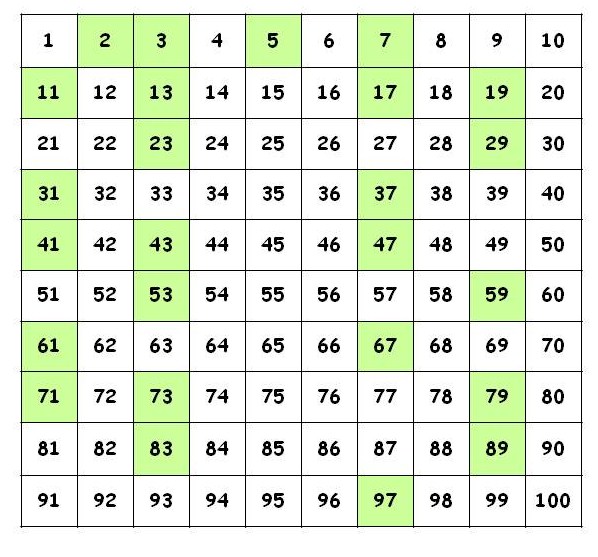
mathcounts notes Prime Numbers Mathcounts Beginning Level
Step 1: Make a hundreds chart. (Write all the natural numbers between 1 to 100 using 10 rows and 10 columns.) Step 2: Leave 1 as it is neither a prime number nor composite number. Step 3: Encircle 2 and cross out all its multiples (such as 4, 6, 8, 10, and so on) as they are not prime.
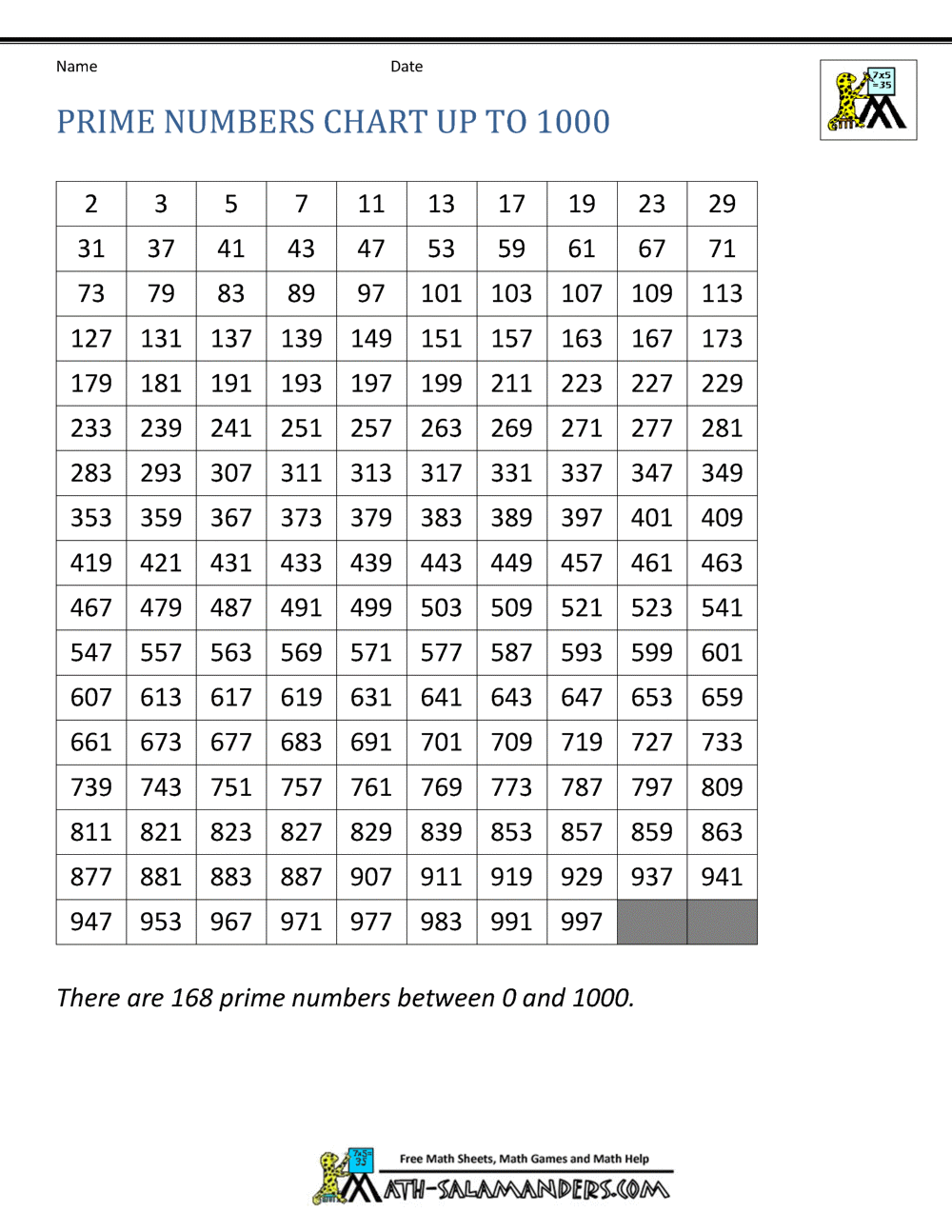
Prime Numbers Chart
Prime Numbers Chart What is a Prime Number? A Prime number is a whole number that has two factors, one and itself, Example: 5 is a prime number because the only number you can multiply to get to five is 1. 1 x 5 =5 Factor? Factors are the numbers you multiply together to get another number: Example1: 1 and 5 are factors of 5 1x5=5 example2: 3 and 4

number theory Primes and 32 where did this pattern come from
Prime Numbers List - A Chart of All Primes Up to 20,000 Quincy Larson Here's a list of all 2,262 prime numbers between zero and 20,000. I assembled this list for my own uses as a programmer, and wanted to share it with you. Before I show you the list, here's how to generate a list of prime numbers of your own using a few popular languages.
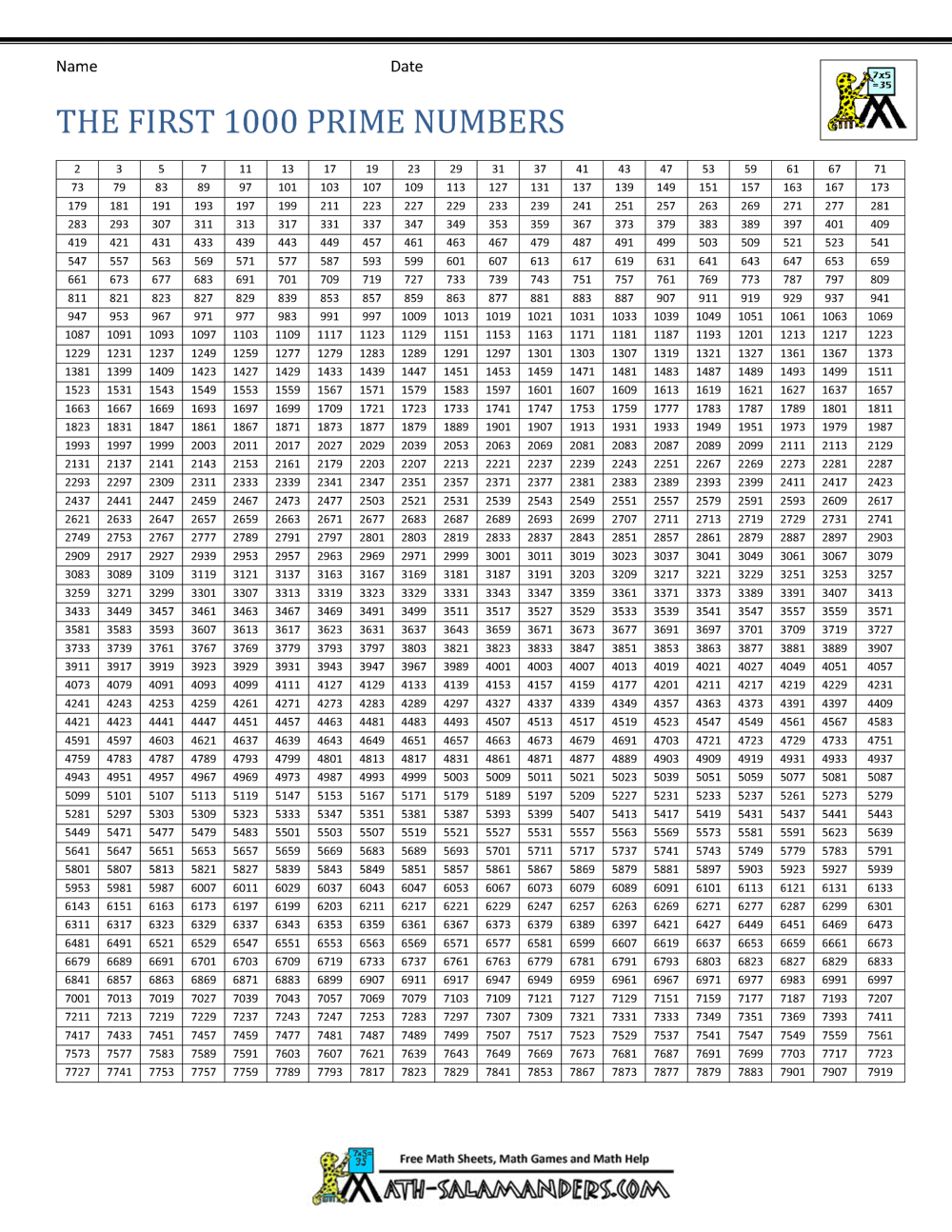
Prime Numbers List
Prime Numbers Chart What is a prime number? A prime number is a number that is only divisible by itself and 1 . It must also be greater than one. Another way of saying this is that the only factors of a prime number are 1 and the number itself. Find Prime Numbers Calculator
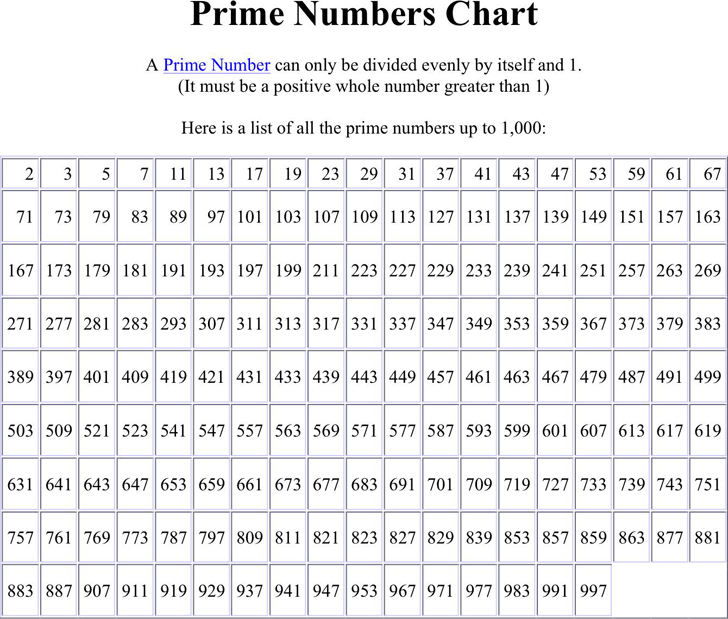
Free Prime Number Chart doc 42KB 1 Page(s)
A prime number chart is a chart that shows the list of prime numbers in a systematic order. It should be noted that all prime numbers are odd numbers except for the number 2 which is an even number. Interestingly, 2 is the only prime number that is even. This means the list of odd numbers can start from 3 onwards and continue because the rest.

Carson Dellosa Prime Numbers Chart CD414062 SupplyMe
The chart includes prime numbers such as 3, 5, 7, 11, 13, and so forth. This sequential list showcases the foundational elements that shape the numerical landscape. Prime Numbers 1 to 100. Numbers Prime Numbers; Between 1 and 10: 2, 3, 5, 7: Between 11 and 20: 11, 13, 17, 19: Between 21 and 30: 23, 29: Between 31 and 40:
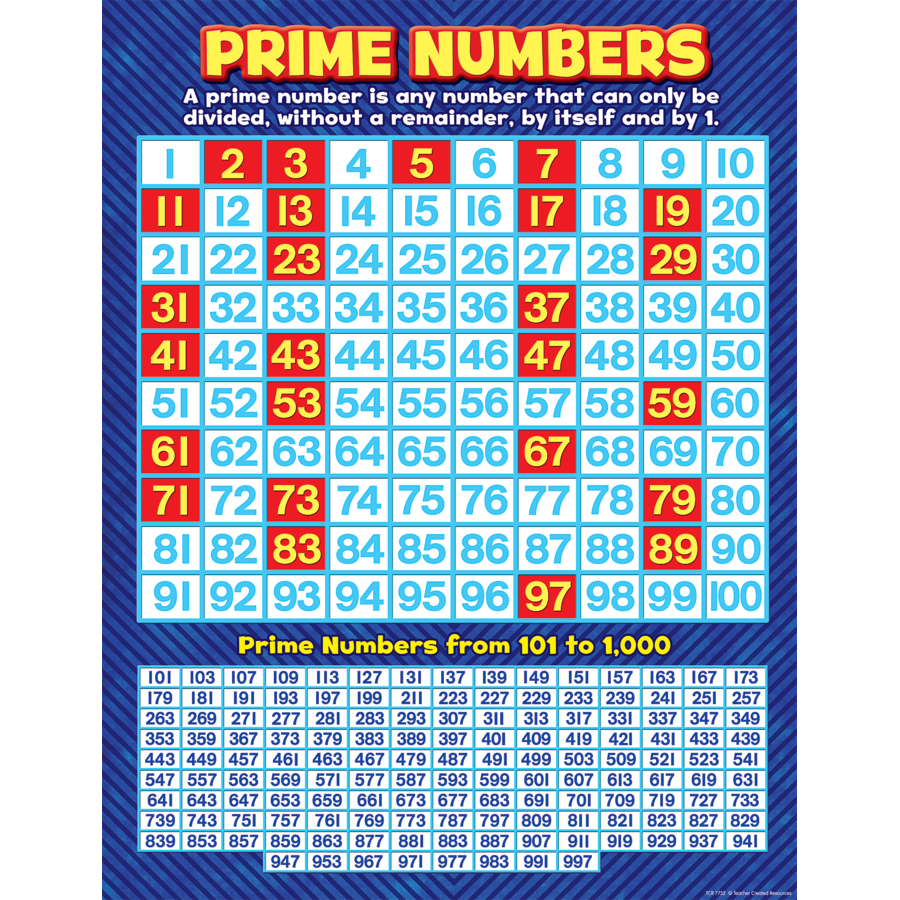
Prime Numbers Chart TCR7732 Teacher Created Resources
1 Free Download of Prime Numbers Chart 2 More Free Math Reference Charts I created this free printable prime numbers chart that features all of the prime numbers under 100 for my Pre-Calculus students to reference while simplifying radicals recently. I think it would be useful for a much wider range of math students, though.
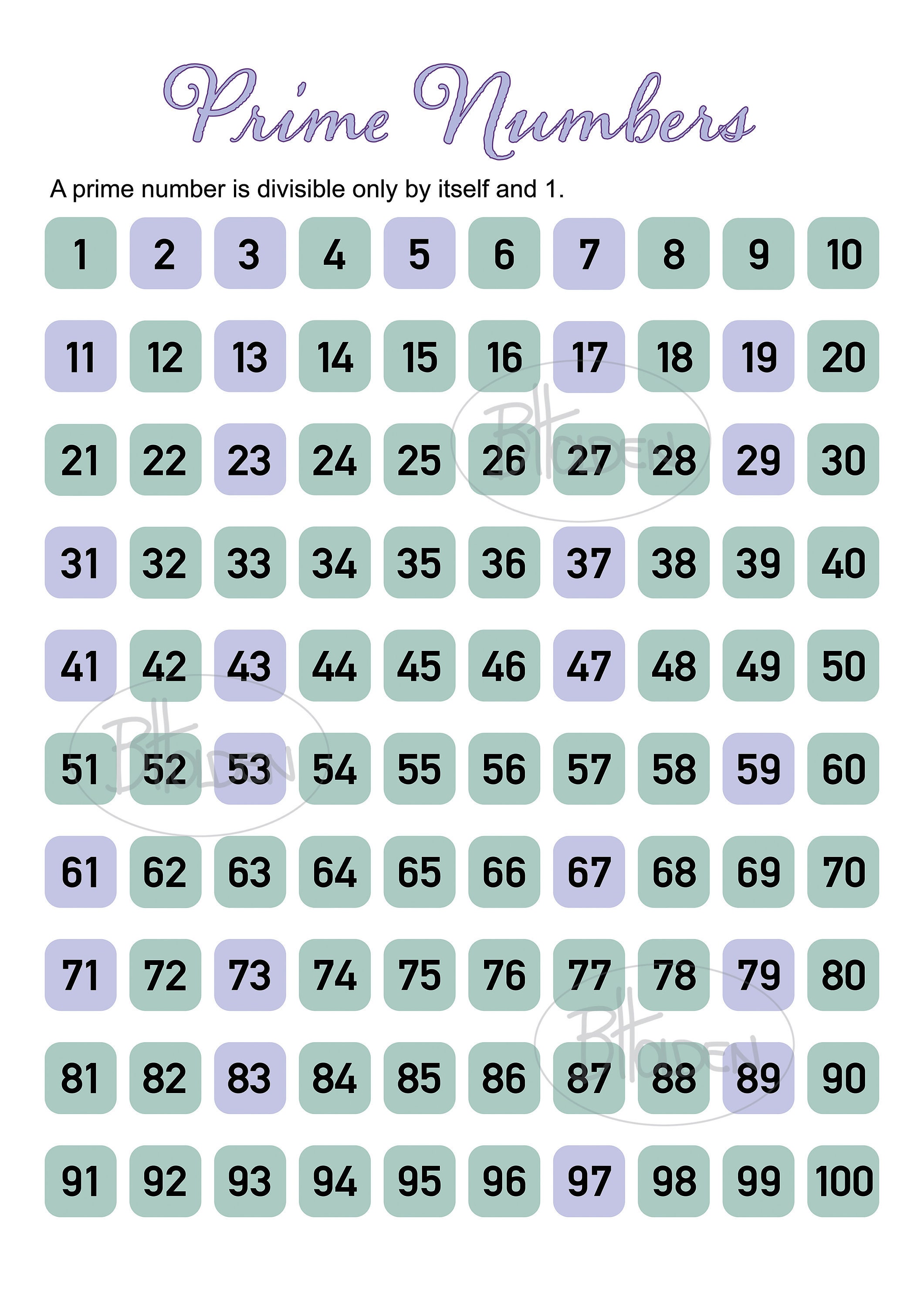
Prime Numbers Chart Poster Print Etsy
A printable prime number chart is a great way to help your child learn about prime numbers. It can be used as a visual aid to help them understand the concept, and it can also be used as a reference tool for practice exercises. These free printable prime numbers charts are the perfect tool for young kids who need to learn the prime numbers.

Prime Number Chart
One of our charts is a basic list of prime numbers from 2 to 1000. This chart is useful for finding specific prime numbers quickly, as it provides an easy-to-read list of all primes within this range. Another chart we offer is a visual representation of prime numbers up to 100.

214 best images about Teaching Factors & Multiples on Pinterest Early
Prime Numbers Chart and Calculator A Prime Number is: a whole number above 1 that cannot be made by multiplying other whole numbers (if we can make it by multiplying other whole numbers it is a Composite Number) Here we see it in action: 2 is Prime, 3 is Prime, 4 is Composite (=2×2), 5 is Prime, and so on.

Download Prime Number Chart for Free FormTemplate
A positive integer that is greater than 1 with two positive divisors, 1 and itself is called as the prime number. It is always a natural number. For example, 3 is a prime number, since it has only 1 and 3 as its divisors. This is a chart to list the first 1229 prime numbers between 1 and 10000. 2 is the smallest even prime number of all.

5,456 Prime Number Images, Stock Photos & Vectors Shutterstock
A prime number is a natural number greater than 1 that has no positive integer divisors other than 1 and itself. For example, 5 is a prime number because it has no positive divisors other than 1 and 5. In contrast to prime numbers, a composite number is a positive integer greater than 1 that has more than two positive divisors. For example, 4 is a composite number because it has three positive.
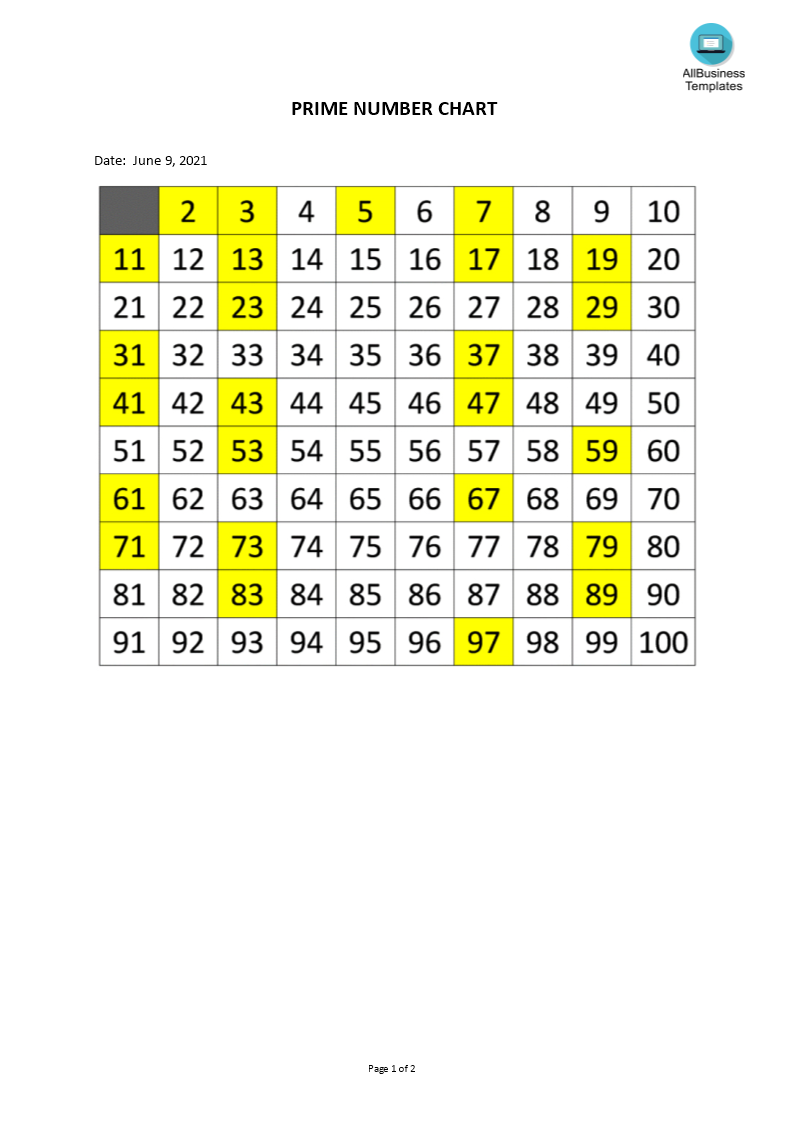
Prime Number Chart Templates at
A prime number (or prime) is a natural number greater than 1 that has no positive divisors other than 1 and itself. By Euclid's theorem, there are an infinite number of prime numbers. Subsets of the prime numbers may be generated with various formulas for primes.
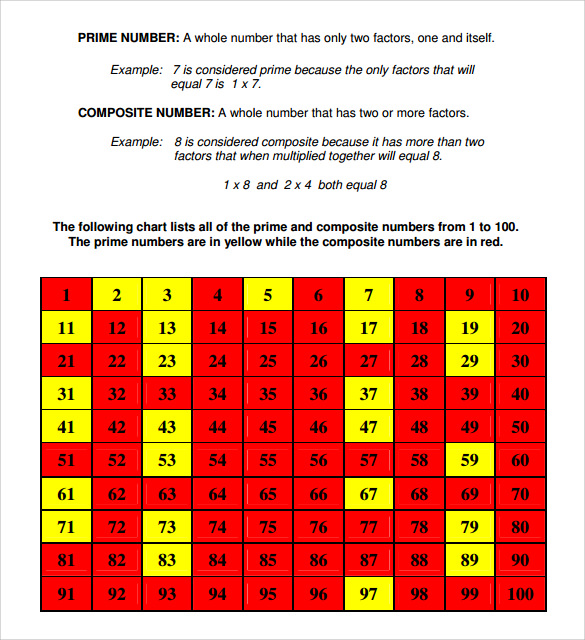
FREE 8+ Sample Prime Number Chart Templates in PDF MS Word
A prime number is a positive integer having exactly two factors, i.e. 1 and the number itself. If p is a prime, then its only factors are necessarily 1 and p itself. Any number that does not follow this is termed a composite number, which can be factored into other positive integers.
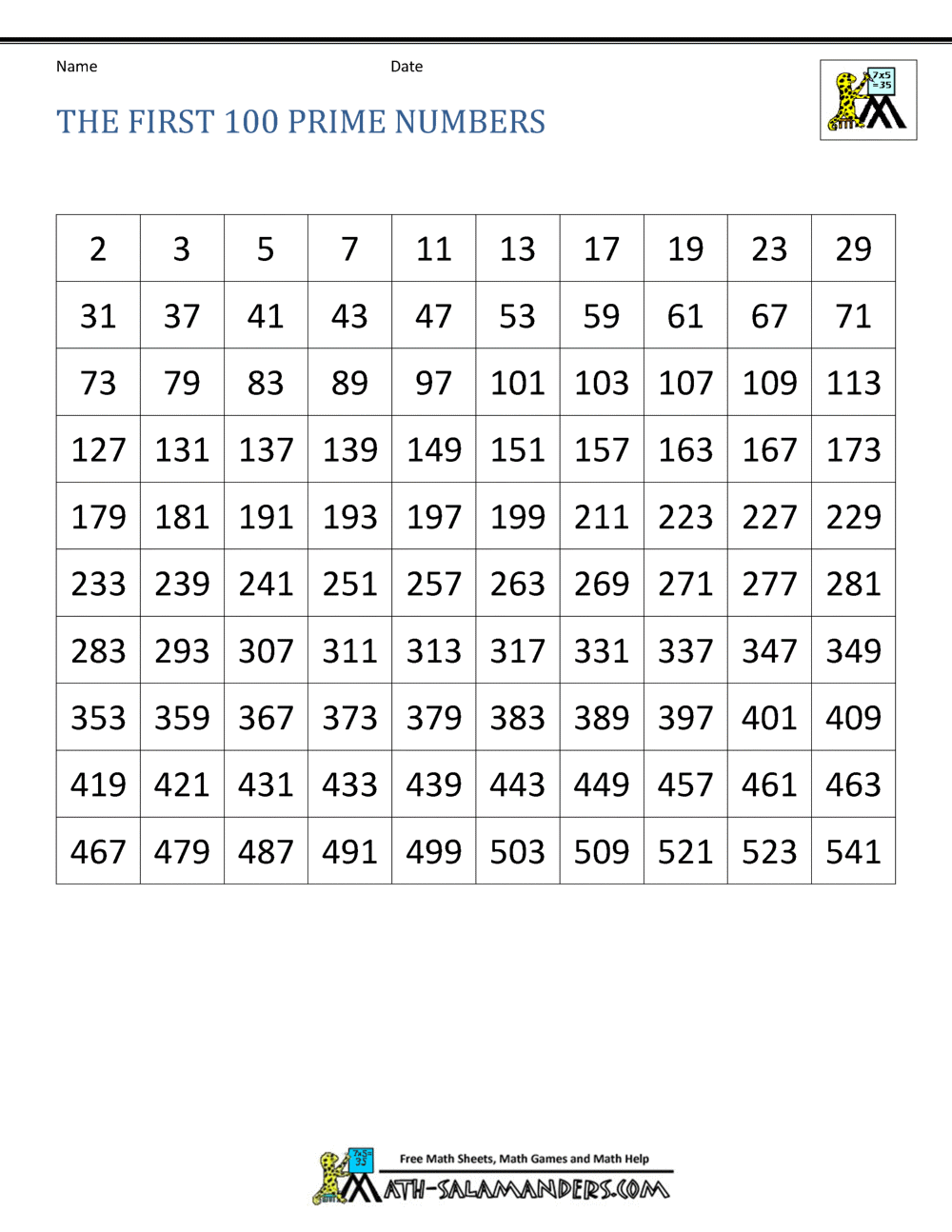
Prime Numbers List
A prime numbers chart that display all prime numbers from 1 to 5003. basic-mathematics.com Menu Home Algebra Pre-algebra lessons Pre-algebra word problems Algebra lessons Algebra word problems Algebra proofs Advanced algebra Geometry Geometry lessons Geometry word problems Geometry proofs Trigonometry lessons Applied math Consumer math
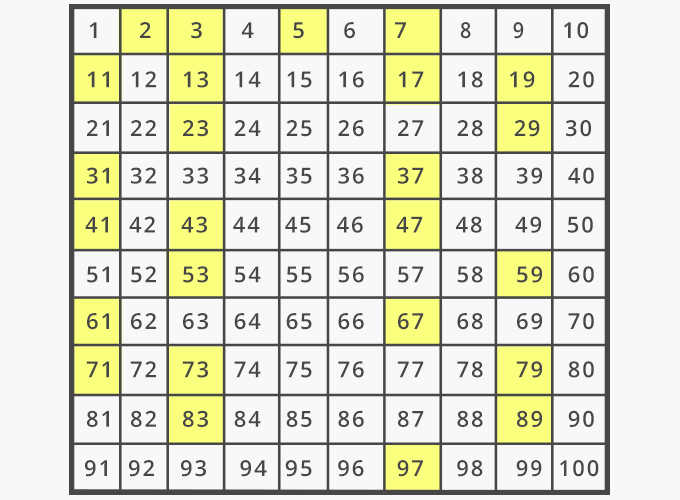
What is Prime Number? [Definition, Facts & Example]
Here are the prime numbers in the range 0 to 10,000. You can also download more prime numbers here